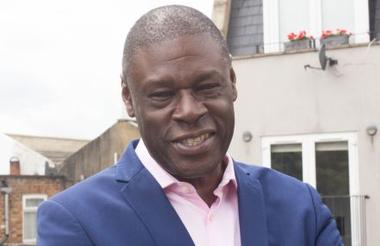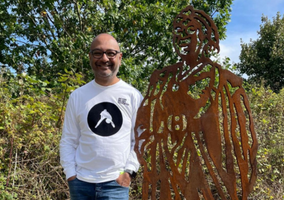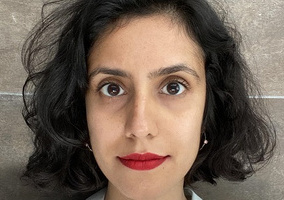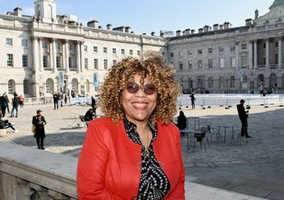Kunle Olulode spent much of his early career in local government but he got his first taste of the charity sector at college.
In the 1970s, Olulode organised undergraduate students of Afro-Caribbean backgrounds to advocate for race equality issues in the education sector.
After obtaining a degree in economics, he joined the Greater London Council (GLC) as an administrator in the policy department, where he worked to formulate the city’s economic and social strategies.
Olulode worked under Hilary Wainwright, a prominent sociologist, political activist and socialist feminist, who served as the deputy chief economic advisor. He also worked alongside people who went on to set up think tanks or work as advisors to former prime minister Tony Blair.
“That enabled me to meet with some quite amazing people and be involved in some incredible projects that later became the foundation of a lot of social policy today,” he says.
For instance, GLC member Akyaaba Addai Sebo led the establishment of Black History Month in the UK in 1987.
“It was for me, as a new graduate, a real interesting foundation for understanding policy, politics and its relationship to British society more widely,” Olulode says.
Olulode’s time as a steward in the National Association of Local Government Officers, where he represented minority staff on disputes with management, helped him gain further insights into the specifics of race issues.
And while he worked as a senior policy officer in social care at the London Borough of Camden, he was also the chair of the Camden Black Workers group, championing the voice of over 500 Black and Asian members.
Switch to the charity sector
But after many years in local government, Olulode decided he needed a change.
“I had got to a point where I was doing work on things that were repeating themselves, so I felt it was time for me to get out of local government and invest myself fully in voluntary work,” he says.
It was only through his brother-in-law that Olulode found out about a marketing and communications role at Voice 4 Change England (V4CE) in 2012. He went for it and got the job.
Having been involved in the trade union movement and the voluntary sector for years, Olulode already knew the movers and shakers.
“I knew virtually all the leaders in the race equality field. So, it was a very comfortable fit for me,” he says.
“The thing that struck me, though, was that the race side within the charity sector was very old-fashioned and seemed to me that it hadn't really understood how things had changed and we were still talking as if we were in the 1980s.”
That was in 2012, but he says the sector has since moved away from the paternalistic relationship it had with ethnic minority communities.
A challenging start as director
Less than a year into his role at V4CE, he saw an opportunity to become the organisation’s director when the position opened.
Olulode became V4CE’s director in January 2013, and his leadership skills were tested immediately when two major funders suspended their grants to his organisation. He also had to draft the organisation’s next year’s budget by spring and present it to the board.
“It was an interesting time, but there was no time to ease my way into the job,” he says.
Olulode says the toughest challenge came during the Covid-19 pandemic.
“At that time, Voice 4 Change was just trucking along quite happily, but Covid-19 propelled us in a completely new direction.
“We moved from being recipients of grants to being a grant provider ourselves.
“We learnt how to carry out assessments and build a team in a matter of months that would then enable us to move the money and grants out to organisations that desperately needed it.
“That’s not an easy thing to build the grants team from scratch in six months and then to be providing grants.”
Young people ‘put off’ from setting up charities
V4CE is a national infrastructure support body with 481 members including individuals and charities.
It provides support to ethnic minority communities in the voluntary sector via training, capacity building, policy advocacy and grants.
In his role, Olulode also has a mission to get more young adults from minoritised groups involved in leadership and entrepreneurship roles in the sector.
But, he says, some young people are put off from setting up their charities due to the need to consult lawyers and get the necessary documents to register with the Charity Commission.
He says because of the difficulty in registering as a charity, young prospective founders are looking at other options instead such as setting up limited liability companies or community interest companies (CIC).
“Young people are thinking: ‘Well, I could be a CIC in a week, whereas if I want to be a charity, I'm going to have to research this. It's probably going to take me three months. I've got to go through a registration process. I'm going to have to fundraise before the charity is even set up.’
“It's not unusual for people to set up businesses or enterprises and then become charities later. Many young people want to set up enterprises and businesses that are going to make money, but they also want businesses that serve a social purpose.
“Social enterprise, as we call it, is now something that many people have got into from minority backgrounds.
“We have to engage more with the private sector and particularly the enterprise sector.”
‘We want to see greater equality’
In response to a recent survey from NCVO on trustees, three in five charities in England and Wales said the underrepresentation of young people on their boards was a major concern. Meanwhile, half said a lack of ethnic representation was their main problem.
“The sector is populated by a significant number of people from Black and minoritised communities, but their ability to influence in those areas is limited,” Olulode says.
“Representation on its own is not enough in terms of changing culture in organisations.
“What we want to see is greater equality and a greater, more leveled playing field in terms of political involvement in the sector.
“It's also about changing the dynamic for younger people. To let them see that there's a clear path where they can see themselves not only coming in as administrators, but potentially they can build a career where they're going to become the next generation of chief executive officers, senior managers and specialists.”
Better engagement with young people
NCVO’s latest almanac found that the charity sector has an older workforce on average compared to the public or private sectors.
Some 28% of charity employees are over 55 years old while under 25 year-olds make up 6% of the sector’s workforce.
“The problem is that many of those older people are getting towards retirement age, and if there's no funnel or line of new talent coming through, we're going to have a problem in the future,” Olulode says.
Younger people must come into the sector with new ideas and ways of working, he says, especially considering the effect that technologies such as artificial intelligence (AI) could have in the coming years.
“I'd be much more confident to have a discussion about AI with somebody who is 23 or 24 than somebody who is like me heading to their mid-60s.”
Olulode says he was often approached by students in universities and colleges after his lectures on how they could get involved in the sector.
“But I think we aren't always receptive to finding ways of utilising their talents. And so, we've got to be much better at engaging with those who are active and want to be engaged in some form of activity.
“At the board level, we have to find ways of connecting with them.”
Related articles












